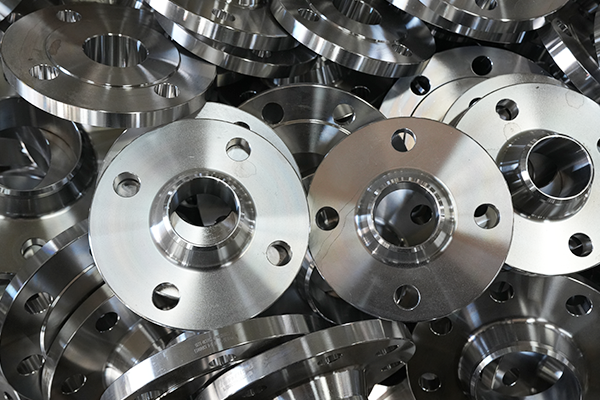NewsDetails
How to Evaluate an Insulated Pipeline Supplier for Urban District Heating Projects
author:Zhantong time:2025-10-20 22:54:54 Click:132
Why Choosing the Right Insulated Pipeline Supplier Matters
In modern cities, district heating systems play a central role in improving energy efficiency and reducing carbon emissions. These systems depend on insulated pipelines that carry hot water or steam from central plants to homes, offices, and public facilities with minimal energy loss.
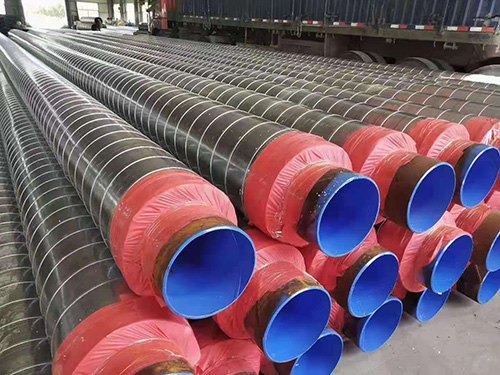
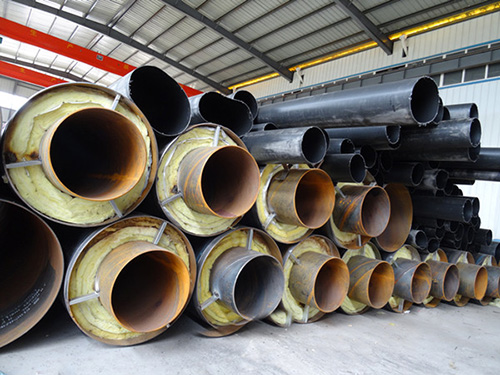
A trustworthy Insulated Pipeline Supplier ensures that the entire system remains safe, efficient, and durable. With the expansion of global urban heating projects, China manufacturers have become significant contributors—offering bulk supply of pre-insulated pipelines that combine advanced insulation technology, strict quality control, and cost efficiency.
1. Understanding the Basics of Insulated Pipelines
An insulated pipeline is engineered to transport heat while maintaining temperature stability and minimizing loss over long distances. It typically consists of three interconnected layers:
1.Steel Carrier Pipe: The internal conduit that transports pressurized hot water or steam.
2.Thermal Insulation Layer: Commonly made of polyurethane (PU) foam, it provides high thermal resistance and prevents energy dissipation.
3.Outer Protective Jacket: A durable sheath—often HDPE or galvanized steel—protects the insulation from moisture, corrosion, and mechanical damage.
When sourced from a reputable Insulated Pipeline Supplier, these layers are seamlessly bonded to ensure decades of reliable performance even in challenging urban environments.
2. Key Criteria to Evaluate an Insulated Pipeline Supplier
Selecting a qualified supplier goes beyond comparing prices. For long-term performance and safety, project planners should assess the following aspects:
a. Quality Standards and Material Certification
Ensure the supplier adheres to international standards such as EN 253, ISO 9001, and ISO 14001. Certification confirms that steel pipes, insulation materials, and protective layers meet structural and environmental requirements.
b. Manufacturing Technology
Suppliers with automated coating and foaming equipment can maintain consistency across large orders. Leading China-based manufacturers use high-precision molding and temperature control systems to produce bulk supply efficiently.
c. Insulation Performance Testing
Check whether the supplier provides verifiable test data for thermal conductivity, compressive strength, and water absorption. Transparent performance reports reflect technical credibility.
d. Protection Against Corrosion and External Damage
A robust outer jacket and moisture barrier system are essential for underground or outdoor pipelines. Ask about their methods for preventing corrosion and ensuring long-term durability.
e. Technical Support and Experience
An experienced Insulated Pipeline Supplier offers design consultation, installation guidance, and after-sale assistance. This support can prevent costly errors during construction or operation.
3. Advantages of Working with China Manufacturers
The rise of China’s insulated pipeline industry has reshaped the global district heating market. China manufacturers now play a vital role in supplying bulk quantities of insulated pipes for international projects. Their competitive edge comes from:
·Integrated Production Facilities: Combining steel fabrication, foaming, and coating in a single process line.
·Advanced Insulation Technology: Polyurethane foam with improved density and low thermal conductivity.
·Customization Capability: Flexible pipe diameters, insulation thicknesses, and outer jackets tailored to local climates.
·Comprehensive Quality Control: Automated testing for mechanical strength, leak resistance, and coating adhesion.
With large-scale manufacturing capacity and stable logistics networks, these suppliers offer cost-effective and reliable solutions for global energy infrastructure.
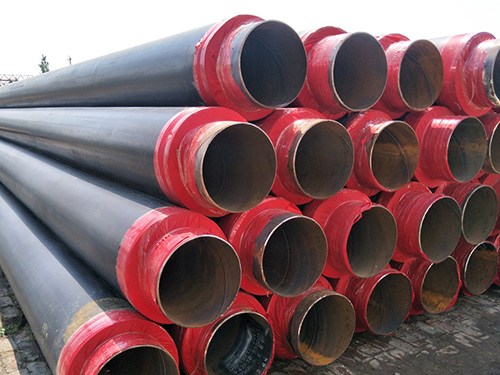
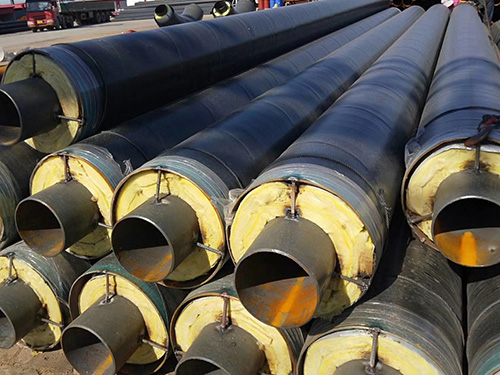
4. Assessing Supply Strength and Delivery Reliability
Urban heating projects require thousands of meters of pipeline, making bulk supply reliability essential. A dependable Insulated Pipeline Supplier should demonstrate:
·Continuous Production Output: Capacity to meet deadlines without compromising quality.
·Efficient Transportation and Export Logistics: Ensuring timely delivery across regions.
·Consistent Product Traceability: Detailed batch tracking and inspection records for each shipment.
·Post-Delivery Support: Technical assistance, documentation, and replacement services if needed.
Partnering with a China manufacturer that can handle large orders ensures stability and efficiency from production to installation.
5. Sustainability and Innovation in Insulated Pipeline Design
As cities pursue carbon neutrality, innovation in pipeline insulation materials and monitoring technologies is accelerating. Leading Insulated Pipeline Suppliers are adopting environmentally friendly and intelligent systems such as:
·Low-Emission Polyurethane Foam: Reduces environmental footprint during production.
·Smart Monitoring Sensors: Embedded sensors track temperature and pressure to detect leaks or insulation failures.
·Recyclable Jacket Materials: Enables reuse and reduces plastic waste.
·Digital Twin Technology: Allows predictive maintenance by simulating heat distribution and pipeline behavior in real time.
These developments align with the broader movement toward green construction and sustainable urban energy systems.
6. Practical Steps for Supplier Evaluation
To streamline the selection process, project managers can follow these steps:
1.Request Technical Data Sheets – Review specifications, thermal loss coefficients, and safety parameters.
2.Visit or Audit the Production Facility – If possible, inspect coating, insulation, and testing operations.
3.Check Reference Projects – A proven track record in district heating networks indicates capability.
4.Review Warranty and Maintenance Policies – Reliable suppliers provide long-term guarantees for insulation performance.
By following these steps, decision-makers can minimize risk and ensure the chosen supplier can support the project’s full life cycle.
Conclusion: Building Sustainable Cities with the Right Insulated Pipeline Supplier
In today’s energy-conscious world, selecting the right Insulated Pipeline Supplier is a strategic decision that influences the efficiency, safety, and longevity of urban district heating systems. From certified materials and insulation performance to large-scale logistics and after-sale service, every detail matters.
With China manufacturers offering bulk supply capacity and advanced insulation technology, developers can count on dependable partners to deliver high-quality pipelines for sustainable urban heating infrastructure.
Ultimately, a well-chosen Insulated Pipeline Supplier not only ensures consistent energy delivery but also supports global goals for cleaner, smarter, and more resilient cities.
References
GB/T 7714:van der Stok E J W. Quality Control of Joint Installation in Pre-Insulated Pipe Systems[C]//The 14th International Symposium on District Heating and Cooling. Stockholm, Sweden. 2014.
MLA:van der Stok, E. J. W. "Quality Control of Joint Installation in Pre-Insulated Pipe Systems." The 14th International Symposium on District Heating and Cooling. Stockholm, Sweden. 2014.
APA:van der Stok, E. J. W. (2014). Quality Control of Joint Installation in Pre-Insulated Pipe Systems. In The 14th International Symposium on District Heating and Cooling. Stockholm, Sweden.
 Recommended Products
Recommended Products
 Contact us
Contact us
—— Contact:Manager
—— Tel:+86 15231788966
—— Email:info@zhantongpipe.com
—— Url:https://www.zhantongpipe.com
—— Address:Mengcun Hui Autonomous County, Cangzhou City, Hebei Province

